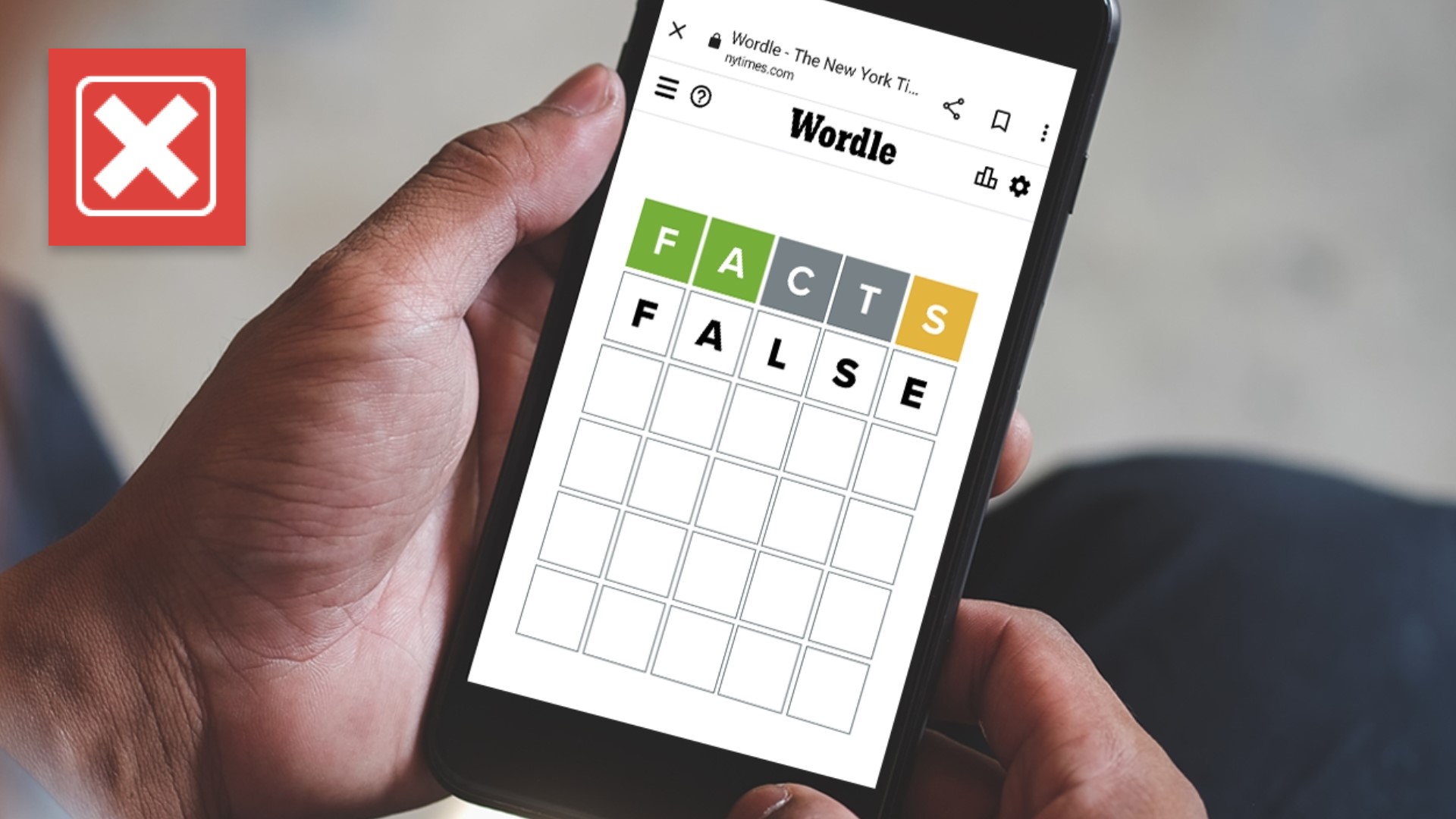In January, the massively popular word game Wordle – which gives players six tries to guess a five-letter word – was bought by The New York Times.
Recently, people have begun complaining that the game has suddenly become harder. They claim the Times' version of the game uses more obscure words as answers.
THE QUESTION
Did The New York Times make Wordle harder?
THE SOURCES
Source code from the original Wordle site, via the Internet Archive
Statement from The New York Times
THE ANSWER
No, The New York Times did not make Wordle harder.
WHAT WE FOUND
To understand whether the game’s gotten harder, you have to understand how the daily word is chosen.
This isn’t like the crossword, where puzzle masters decide the answers for each day. The answers were pre-determined long ago by the creator, Josh Wardle. There’s a set list of about 2,500 words that are assigned to different days.
So to see if the Times made the game harder, you can look at the source code for the original website’s word list, and compare it to the new one. (Yes, it’s possible to see the complete list, in order, so you could cheat if you really wanted. Spoiler alert: clicking those links will reveal the daily answers.)
When you download and compare the two lists, you’ll find they’re nearly identical. The only change is that the original list is six words longer.
When the Times took over, it removed six words (agora, pupal, lynch, fibre, slave, and wench) either because they might be offensive, or because they were just too obscure.
The Times did not add any new words. Any word that appears in this version of the game would have appeared in the original version too.
That means, if anything, the Times actually made the game easier.
A spokesperson for the Times confirmed this in a statement: "Since acquiring Wordle, we have not made the puzzle harder. We have not added any words to the solutions list, which was already predetermined by the game's original creator. On the contrary, we did remove a few obscure words (as an example, we removed 'AGORA'), in an effort to make the puzzle more accessible. We will continue to review the solutions, and remove obscure or potentially insensitive words."
The order of the words remains the same as the original site, too. However, since the Times removed those six words, some words were bumped up. That’s why people who still had access to the original website recently had “agora” as their answer, while most users had “aroma.” The Times did not add “aroma” to the word list; it was already next up after “agora," which was removed from the new site.

